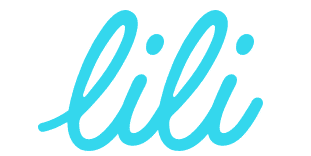Millions of Americans work as freelancers or juggle side hustles alongside their 9-to-5 jobs. Whether they use a formal business entity or not, and regardless of how they think of themselves, these people are small-business owners.
That doesn’t mean they have the same degree of access to the business banking system, however. Just as the universe of credit cards for freelancers is smaller than the universe of small-business credit cards, many business-friendly banks choose not to deal with freelancers and people with side gigs.
Fortunately, many do. If you’re looking for a bank account to manage your freelance or side hustle finances, it’s time to get familiar with the names on this list.
The Best Bank Accounts for Freelancers and Side Hustlers
These are the best bank accounts for freelancers and people with side gigs right now. Each does at least one thing really well, and we believe that our best overall pick offers the best value for the greatest number of would-be users.
Best Overall: Lili (Lili Account)
Lili Account offers tools for freelancers & self-employed, including tax management, invoicing, expense categorization, and more.
For Freelancers
Tailored to freelancers and self-employed individuals
Tax Management
Tools for managing various revenue streams and expenses
Invoicing Made Easy
Features internal invoicing capabilities

Apply NowRead the Review
Methodology: How We Select the Best Bank Accounts for Freelancers and Side Hustlers
We use several important factors to assess the best bank accounts for people with side gigs and freelance jobs. Each relates in some way to the overall cost of the account, its ease of use, its flexibility, or its ability to create value for the account holder.
Monthly Maintenance Fee
The monthly maintenance fee isn’t necessarily the most important or costly bank account fee. Overdraft fees can add up quickly if you’re not careful, for example.
But the monthly maintenance charge is the fee that first comes to mind for most would-be account holders, and it’s often the most difficult to avoid. So, all else being equal, we prefer freelancer-friendly banks with no monthly maintenance fees or low maintenance fees that can be waived with a minimum balance or other qualifying activities.
Other Account Fees
Other common bank account fees include overdraft and nonsufficient funds (NSF) fees, paper statement fees, ATM withdrawal fees, and wire transfer fees. Few bank accounts are truly fee-free, but we give preference to those that are, then look to accounts with fewer and lower fees than average.
Transaction Limits
It’s rare for consumer checking accounts to limit transaction volumes, but many business bank accounts do just that. These limits can be quite low for businesses with lots of expenses — sometimes just 50 or 100 transactions per month.
Freelancers usually aren’t as prolific as small or midsize businesses when it comes to payments. But side hustlers with complex gigs, like successful dropshipping businesses, can quickly run over their monthly transaction allotments. That’s why we prefer banks and accounts that waive transaction limits or set them so high that they don’t trouble most freelancers and side hustlers.
Minimum Balance and Deposit Requirements
Many business bank accounts impose high minimum balance or initial deposit requirements that price out sole proprietors. In some cases, these minimums don’t prevent you from opening an account but you’ll need to meet them to avoid maintenance fees or other charges.
We prefer banks that dispense with minimum balance and deposit requirements entirely. Failing that, we look to banks with reasonable minimums or alternative options for avoiding fees tied to those minimums, such as recurring direct deposits.
Account Yield (Interest Rate)
Most business checking accounts pay minimal interest, if any. Business savings accounts are more likely to pay interest, but you shouldn’t expect your return to keep pace with inflation. Still, any yield is better than no yield at all, and we evaluate banks and accounts accordingly.
Mobile Features and Functionality
Many freelancers and side hustlers do business primarily on their mobile phones. If you have a successful dogwalking or handyman business, for example, you’re likely to be out of the office more than you’re in it. You no doubt use your phone to interact with clients, make purchases, keep notes, and so on.
So why should you have to bank on the laptop or desktop computer you rarely use? You shouldn’t — which is why we prefer banks with comprehensive, fully functional mobile apps or account dashboards.
Budgeting and Savings Features
You don’t have to commingle your business and personal finances to appreciate the importance of keeping a budget and spending within your means. In fact, if you’re serious about growing your side hustle, you have a powerful incentive to track every expense and spend less than you earn.
That’s where internal budgeting tools and automated savings capabilities come in. More and more freelancer-friendly banks offer these tools at no additional cost, including many of the selections on this list.
Accounting and Tax Features
Some freelancer-friendly bank accounts have built-in or external accounting and tax management features as well. When external, these features typically take the form of seamless integrations with well-known third-party products like Xero or QuickBooks. All else being equal, we’re fans of banks that go the extra mile to simplify things at tax time.
Freelancer Bank Account FAQs
You have questions about bank accounts for freelancers and side hustlers. We have answers.
Should You Have a Separate Bank Account If You’re a Freelancer?
It’s not strictly necessary to have a separate bank account if you’re a freelancer. Many freelancers receive income and pay expenses out of their personal bank accounts.
This is especially common for part-time freelancers who don’t have formally incorporated business entities and don’t spend a lot of time on freelance work. At some point, it’s just not worth it to maintain separate business and personal accounts.
On the other hand, if you freelance full-time or have a formally incorporated business, a separate business account could make sense. As this list shows, freelancer-friendly bank accounts are free or cheap and can make managing a side business much easier.
Do You Need a Separate Bank Account for Your Side Hustle?
You don’t need a separate bank account for your side hustle either. If your side hustle is a casual, part-time effort, a separate account might not be worth the trouble. You can still take advantage of the tax benefits (and obligations) of self-employment without one.
Many side hustles grow into full-time business enterprises, of course. If you have ambitions to quit your 9-to-5 and work on growing your business around the clock, you’ll want to separate your business and personal finances sooner than later — and consider formally incorporating the business while you’re at it.
Do You Need to Incorporate Your Freelance Business or Side Hustle?
Most of the banks on this list don’t require business account holders to formally incorporate. You can open a business bank account for your freelance or side hustle finances without setting up an LLC or partnership.
Even if you’re not formally incorporated, you can benefit from tax deductions and credits available to business owners and self-employed individuals. You don’t need a business bank account to reap these rewards either, but you might find one useful as your enterprise’s income and expenses grow. Having a dedicated account for your business inflows and outflows will make your life easier come tax time and ensure no potentially valuable deductions (or wayward income streams) fall through the cracks.
Do Freelancers Automatically Qualify for Business Bank Accounts?
It depends on the bank.
Most of the banks on this list are outwardly freelancer-friendly. Either they offer accounts specifically designed for freelancers or they’re lenient about who qualifies for a business account to the point that pretty much anyone with an active side hustle makes the cut.
But you shouldn’t expect this everywhere. Some banks reserve business bank accounts for formally incorporated enterprises with substantial revenue and expenses. Even if you freelance full-time, you might not qualify unless you’re willing to create a legal business structure.
How to Choose the Best Bank Account for Your Freelance Business or Side Hustle
Choosing a bank account to handle your freelance or side hustle finances isn’t all that different from choosing a personal bank account. As you review your options, consider factors like:
- Account Fees. No one likes paying bank account fees. Unless there’s a compelling reason to choose otherwise, you’ll probably want an account that either doesn’t charge a monthly maintenance fee at all or makes it easy to waive with a minimum balance or recurring deposit. Watch out for “minor” fees like ATM withdrawal fees and overdraft fees too.
- Transaction Limits. Many business bank accounts limit the number of transactions you can make in a given month or statement period. If you make lots of little withdrawals or payments, this could be a real problem.
- Minimum Balance Requirements. If you’re a part-time freelancer or side hustler, you probably won’t have an impressive bank account balance, at least to start. And your balance might fluctuate from week to week and month to month, depending on how much you earn. That means you’ll look to bank accounts with low or no minimum balance requirements.
- Account Yield. Business bank accounts aren’t known for high yields. However, if you want to set aside business funds that you don’t need right away, it pays to look for a rewards checking account or high-yield savings account that accepts freelancers and side hustles.
- Additional Features and Capabilities. Do you want a mobile-friendly banking experience that lets you manage your finances on the go? Do you earn a significant amount of your income through money transfer apps like Venmo and PayPal? Do you want a built-in budgeting or accounting framework that simplifies your business finances and keeps them separate from your personal money? These questions — and others along these lines — could help you zero in on the best bank account for your freelance business or side hustle.
Credit: Source link











































